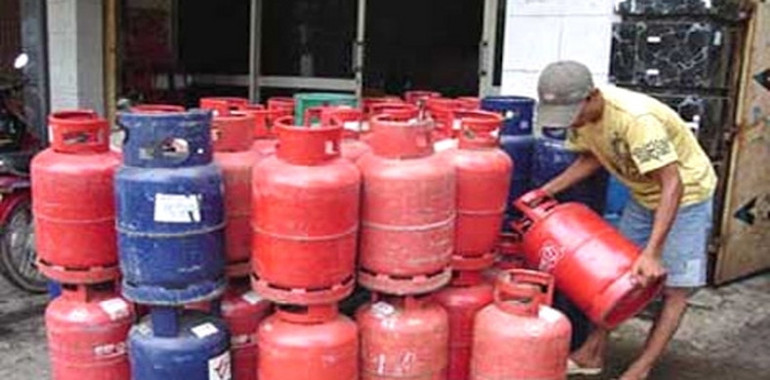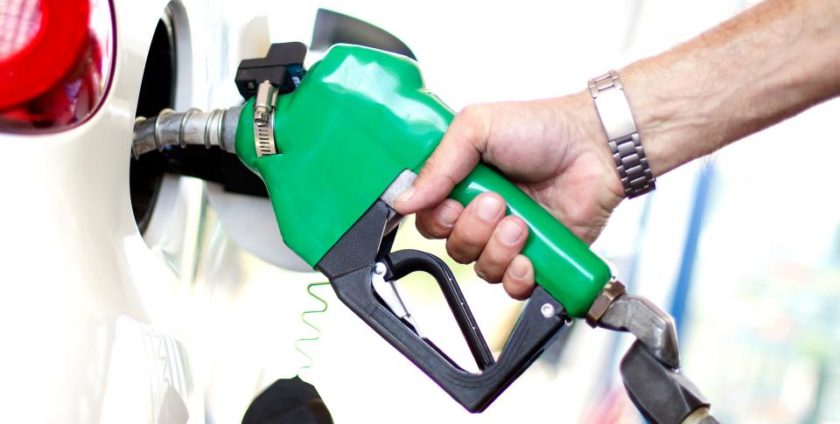Cooking Gas Price Jumps 105% In 12 Months
The average retail price for refilling a 5kg cylinder of Liquefied Petroleum Gas (cooking gas) increased by 105 per cent within the last twelve months.
The exponential increase in the price of cooking gas also follows a similar trend with other deregulated petroleum products such as kerosene and diesel, which have also recorded significant spikes this year.
The price of kerosene used by several families have jumped to N800 per litre just as the market is beginning to adjust to the newly increased petrol and gas prices.
A market survey showed that one litre of cooking kerosene, which sold earlier for N700, now sells for between N800 and N850 in urban parts of Lagos State, while the price has hit as high as N1000 per litre in suburb areas at filling stations.
In the same vein, the price of diesel continues to maintain an all-time high of between N750 to N800.
According to the all items index of the latest Commodity Price Index (inflation report), the highest increases were recorded in prices of gas, followed by liquid fuel, solid fuel, garments, passenger transport by road, cleaning, repair and hire of clothing as well as passenger travel by air.
Energy expert, Bala Zakka, blamed the sharp increase in the price of cooking gas on poor decision-making on the part of policy makers.
He said, “The reason is very simple and straightforward. The model the Nigerian leaders, in this case our economic and political leaders, are using for the downstream sector of the Nigerian oil and gas industry is very wrong. It is a wrong model. That is the simple reason. The answers are not far-fetched. Why is cooking gas not this expensive and inaccessible in other OPEC member countries and other gas exporting fora (Gas Exporting Countries Forum)?
“From natural gas, you can always get cooking gas, by the time you treat it. When you refine crude oil, the first product that will come out is LPG. In all the OPEC member countries that produce crude oil and have functional refineries, they are not complaining about cooking gas. It’s not part of their problem. The only countries that are complaining today are countries that do not have oil and gas.”
According to him, under ideal circumstances, the price of a kilo of cooking gas in Nigeria should not exceed N100, as was obtainable in other countries with abundance of oil and gas deposits.
“In Nigeria, the government does not believe that it is supposed to provide goods and services to the people at a reasonable rate. The government inserted a clause in the Petroleum Industry Bill that they want to deregulate. How can you deregulate the price of a sensitive product like refined petroleum products? How can you deregulate the price of products that do not have substitutes? Had it been cooking gas or kerosene had alternatives, then people would not bother. Now, everybody is feeling the demonic effect of what deregulation is all about. The price of kerosene has been deregulated and we are seeing the consequence. The price of diesel is deregulated and we are seeing the consequence on strategic industrial and commercial sectors.”





